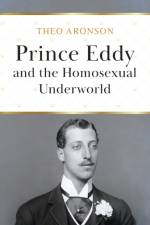- A firsthand account of modern-day sorcery violence
av Christopher Davenport
169
In 1994, a Peace Corps Volunteer named Christopher Davenport travels to Papua New Guinea's Eastern Highlands region to live with a group of subsistence farmers.He settles into village life, begins learning the language and develops a strong sense of connection with his inherited family.One day, following the death of a venerated elder, the people of the village kidnap, torture, and ultimately kill a local woman accused of practising sorcery.Devastated, Christopher tries desperately to reconcile this unspeakable act with the welcoming and caring community he has come to love. He is left with one universal question: How can we continue to love someone after they have done the unthinkable?In this moving true story, Christopher Davenport gives a considerate but courageously honest depiction of his transformative experience. He asks difficult questions about the role of philanthropy in the intersection of cultures and the mutability of human virtue. He also looks internally to question the integrity of his own well-intended pilgrimage. The result is a sweeping account of grief, empathy, and the complex mechanisms of humanity.Praise for The Tin Can Crucible:'Davenport is among the few writers to weave the complexities of Papua New Guinea into a compelling narrative, one that is frightening and fulfilling' - Rick Antonson, author of Walking With Ghosts in Papua New Guinea'Davenport's masterful and lyrical memoir delves into the complexities of his remote village where he strips life and death down to their purest and truest form. His conclusion leaves us with our own values and culture to examine for a long, long time.' - Susan E. Greisen, author of In Search of Pink Flamingos'Davenport paints an enchanting portrait of the Highlands of Papua New Guinea, tearing down stereotypes, and revealing the nuances of the culture and people he came to know. This is a vivid account of cultural immersion, and the moments of discomfort, enlightenment, and hilarity that go along with it. It's also a deeply human story, of grappling with loss and unthinkable moral dilemmas, and of building relationships despite cultural divides. Davenport shows us how to bridge two very different worlds with grace and humility.' - Sarah Erdman, author of Nine Hills to Nambonkaha






























